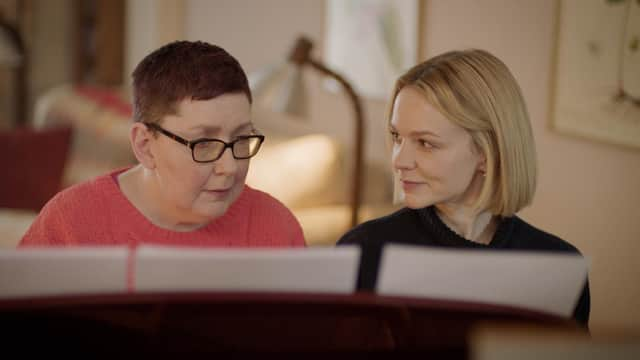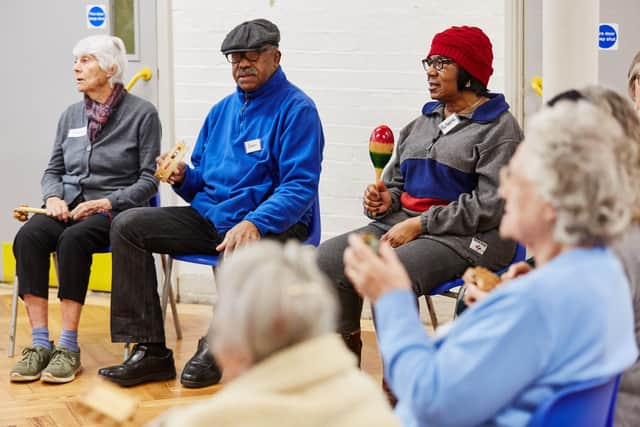Worksop pianist with dementia calls for people to help expand singing programme


Rae Burton is calling for more people to get involved in the Alzheimer's Society’s Singing for the Brain initiative, which unites people affected by dementia.
The charity is now offering care providers, organisations or individuals across the region, with an interest in music, the chance to run their own group and become a Singing for the Braindelivery partner.
Advertisement
Hide AdAdvertisement
Hide AdRae, a 56-year-old pianist, was diagnosed with dementia in 2016.
Prior to the coronavirus pandemic starting, she was visited by award-winning actress and Alzheimer’s Society ambassador Carey Mulligan, as part of a film by the charity to highlight the positive impact music can have.
At the time, the pair duetted and sang at the piano, where Rae revealed how she thought she’d never play again following her diagnosis.
She said: “I first thought that was it but over time I’ve rediscovered the joy and pleasure I get from music.


Advertisement
Hide AdAdvertisement
Hide Ad"I might forget how to play in my mind but my fingers don’t forget and I just let them do their own thing. It’s joyous because I can still make a tune.”
Rae is also a member of a singing group and was delighted to hear of Alzheimer’s Society’s plans to expand the initiative.
She said: “Music has always been a big part of my life, both playing and singing. It brings people together.
“Those moments when you are deep in the music, it is utterly uplifting. The more access people can have to services like this the better.”
Advertisement
Hide AdAdvertisement
Hide AdAlzheimer’s Society, supported by the Utley Foundation, through its Music for Dementia campaign, aims to recruit 80 new delivery partners across the UK by the end of this summer.
Alzheimer’s Society area manager for East Midlands, Nasim Minhas, said: “Music memory is often retained when other memories are lost.
"Singing for the Brain can help people, even in advanced stages of dementia, to tap into long-term memories linked to music and song – for some, this can mean they can communicate through singing when no longer able to do so through speech.”
